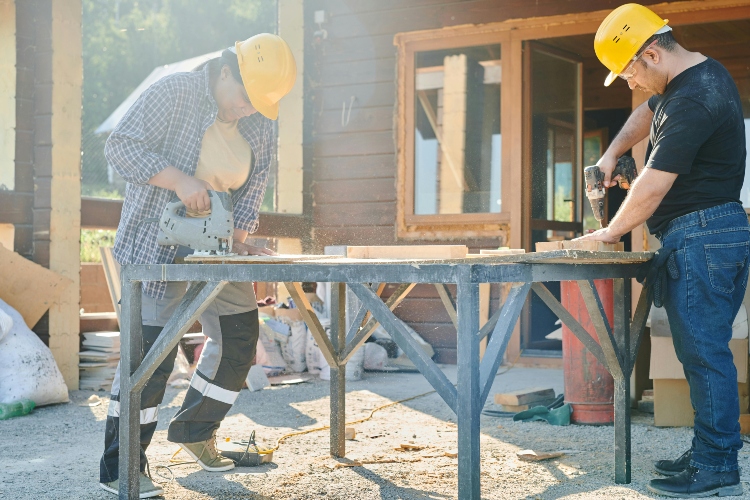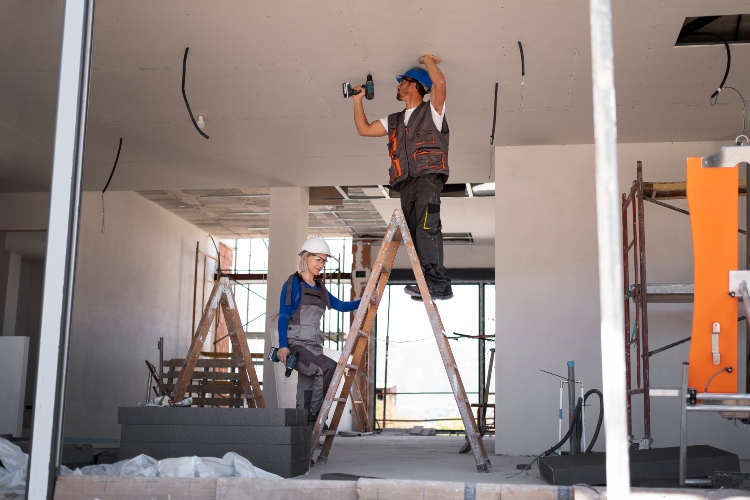Planning a construction or renovation project and facing piles of construction debris? Whether it’s a minor home refresh or a large-scale remodel, knowing your options for renovation dumpster rentals can save you time, hassle, and money. In this guide, we’ll explore everything from dumpster rental for renovation project planning to waste disposal, hazardous materials, and customer service tips.

Why Renting a Dumpster Makes Sense for Home Remodeling
Home remodeling generates a significant amount of debris, including drywall scraps, broken tiles, wood, and packaging materials. Renting a dumpster ensures:
Safe Containment of the Type of Debris
Efficient Waste Removal
Meets Local Codes & Disposal Regulations
Less Hassle Than Hauling to A Landfill Yourself
A roll-off dumpster rental comes right to your property—drop-off, delivery, and pickup are all handled by the dumpster rental company.
Choosing the Right Dumpster: Size, Waste, and Limits
10 Yard Dumpsters and Larger Dumpsters
For smaller remodels—like bathroom or closet updates—a 10‑yard dumpster might do. But for large-scale renovation or complete home remodeling, you may need a larger dumpster. Consider:
- Amount of waste
- Space on-site
- How long will your rental periods last
Weight Limits and Additional Fees
Every dumpster comes with weight limits—when exceeded, additional fees can apply. Avoid surprises by estimating:
- How much debris will your renovation produce
- The type of waste—heavier materials like concrete or tile carry more weight
- Ask the dumpster rental company how they calculate overages
What You Can—and Can’t—Throw Away
Standard Construction Debris
Typically accepted items include wood, drywall, non-hazardous packaging, and old fixtures. These fall under general construction debris.
Hazardous Materials and Hazardous Waste
Watch out—hazardous materials such as paint, solvents, asbestos, or lead-based products usually aren’t allowed in standard dumpsters. You’ll need special disposal for hazardous waste:
- Ask your provider about separation and proper handling
- Some providers offer an add-on for hazardous items—know those additional fees upfront
- Or locate an approved drop-off site

Rental Periods, Delivery, and Pickup
Understanding Rental Periods
Rental Periods, Delivery, and Pickup
Typical rental periods range from 7 to 14 days. For quick DIY jobs, shorter periods are more effective. For extended projects, longer or adjustable rentals help:
- Reduce additional fees due to overdue returns
- Align waste disposal with project pace
Delivery and Pickup Basics
A dumpster rental company will schedule delivery and pickup. Confirm:
- Placement on your property
- Access for the delivery truck
- Safe placement away from hazards or landscaping
Maximizing Efficiency and Avoiding Problems
Here are some tips for efficient waste removal and a smooth dumpster rental experience:
- Estimate your amount of waste accurately.
- Choose a right-sized dumpster—like a 10‑yard dumpster or larger dumpster for bigger jobs.
- Separate hazardous waste early to avoid costly mistakes.
- Confirm weight limits and avoid surprise charges.
- Arrange clear pickup access and schedule returns promptly.
Customer Service: Choosing the Right Dumpster Rental Company
Your dumpster rental company should offer:
- Transparent pricing with additional fees disclosure
- Help with the type of waste guidance
- Flexible rental periods
- Safe delivery and pickup
- Good customer service to answer questions about hazardous materials, weight, or scheduling
Read reviews or ask for referrals to gauge responsiveness and reliability.
FAQ
How Do I Estimate the Amount of Waste and Choose the Size?
List materials (drywall, wood, tile), approximate volume, and local disposal rules. A 10‑yard dumpster works for small jobs; larger dumpsters may be needed for major home remodeling.
What About Weight Limits?
Your dumpster has a maximum weight. Overweight loads usually trigger additional fees—ask ahead and avoid surprises.
How Long Can I Rent A Dumpster?
Rental periods vary. Standard is 7–14 days. You may schedule extensions, but watch for extra costs if you exceed the agreed term..
